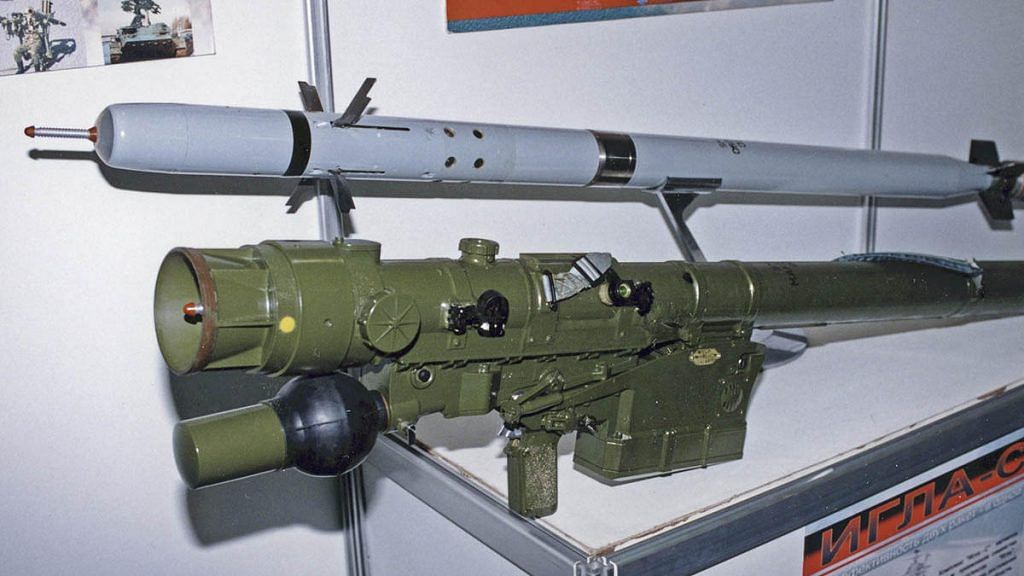Bengaluru: Swedish defence major Saab is still looking for answers after losing out on a multi-billion-dollar deal with India for a very short-range air defence missile system (VSHORADS). It has alleged that the Indian Army favoured Russia during protracted trials, which led to Russian firm Rosoboronexport emerging as the winner.
“We have a feeling that the Russians were favoured,” Bo Almqvist, director, strategic business project at Saab Dynamics, told ThePrint on the sidelines of the Aero India show.
Almqvist added that SAAB was “not a bad loser” but has questions over the alleged favour extended to Russia during the field trials.
Both Saab and European defence firm MBDA, the other contender for the deal, have shot off multiple letters to the Ministry of Defence, alleging rigging.
“We have made them aware of our concerns,” Almqvist said.
The MoD had written back to both Saab and MBDA, saying that due processes were followed. However, further mails sent to the MoD remained unanswered.
The Russians, however, insist they have won the deal after extensive trials.
“This is not a government-to-government deal but a deal in which we competed along with other firms,” Anatoly G. Punchuk, deputy director of the Russian Federal Service for Military Technical Cooperation said.
What was the contract for?
India is currently negotiating with Russia after the IGLA-S system was chosen as the lowest bidder for the forces’ immediate requirement of 800 launchers and more than 5,000 missiles under the VSHORADS programme.
These missiles are meant to counter low-flying aircraft as the last line of defence against flying objects in a layered air defence system.
The procurement process for the VSHORADS began shortly after the Kargil War in 1999, when India learnt a bitter lesson from Pakistan — at least two of its aircraft, a MiG-21 and a MiG-27, were possibly shot down during the war by a Pakistani close-in weapon called the Anza (probably the derivative of a Chinese system).
A layered air defence system envisages short-range, medium-range and long-range missiles that would be able to target enemy aircraft at different ranges.
The Indian forces have been using an older version of the IGLA-S, called the IGLA-M.
Also read: Two European firms fume as ‘laggard’ Russia wins Rs 27,000 crore air defence system deal
The trial process
As ThePrint had reported in November 2018, Field evaluation trials were conducted in 2010, 2012 and 2017, in the extreme hot and cold weather conditions of Pokhran in Rajasthan and Leh in Jammu & Kashmir.
In the first two trials, all three competitors were found to be technically non-compliant.
The MBDA’s Mistral system was not immune to electro-magnetic signals that could compromise its position and also allow enemy aircraft to evade its missile.
Saab’s RBS-70 system was plagued by weight issues, because one of its components was heavier than prescribed in the tender.
The Russian system was found to be faulty in both tracking and targeting adversarial aircraft.
But the defence ministry decided to hold a re-trial to avoid a single-vendor situation that would violate a competitive process.
In the summer of 2017, in the third trial, the Russians failed to prove the efficacy of their missile in tracking targets in the Pokhran ranges. The Russians had also not participated in at least one of the field trials.
Saab & MBDA’s arguments against the Russians
Saab and MBDA were surprised to find the Russians had qualified when the bids were opened.
Saab argued that the Russians fared badly during field trials and procedures were changed to their advantage.
One of the requirements stated that during firing in summer, minimum four out of six missiles had to hit the target.
It is said that the IGLA-S did not hit the target. “However, they were then allowed to fire in the winter, in which they did hit. But remember that the temperature was lower by 30 degrees, from the time both MBDA and Saab fired, which plays a crucial role in a heat seeker,” an industry source said.
Another contention is that the Russians never appeared for a firing and then rules were changed again, under which one did not have to fire at all.
Saab has also contended that the Russians were allowed to change the sight of their system, which the rules do not allow.
Also read: Russia says will select HAL as partner for India contract to buy 114 fighter jets for IAF
